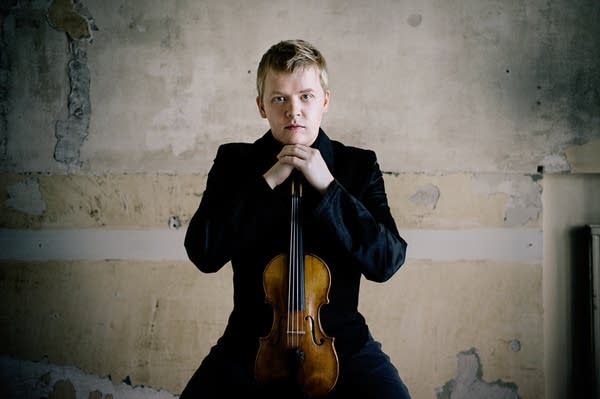
When I played the flute professionally, I would sometimes practice so hard that my hands and fingers would swell up. It was almost like a badge of honor; a sort of "no pain, no gain" mentality that made me feel powerful.
Until my hands became so sore and clumsy, I couldn't turn the knob on a door.
I finally did figure out that resting, stretching, finding better positions in which to play, and relaxing would all contribute to a longer and healthier, pain-free career. But then I developed a neurological disorder and I was forced to give up the flute and take up a new career -- radio.

My playing career is a decade behind me now. But I remember well the abject terror and sense of isolation that accompanies a performance-related injury, of losing one's identity, of having to give up one's "calling" that gives life so much meaning.
This is what many professional -- and up-and-coming -- musicians often experience as they work hard to "play" their instruments.
Janet Horvath, the associate principal cello with the Minnesota Orchestra, is a pioneer in the field of injury prevention for performing musicians. She won a Gold Medal at the 2009 Independent Publishers Awards for her comprehensive book, "Playing (Less) Hurt: An Injury Prevention Guide for Musicians."
Janet self-published her book in 2002. But the exciting recent news is that her book has been released in a revised version with a new publisher, Hal Leonard -- the largest publisher of music and performing arts books in the world.
---
----

As a bit of a preview to the online chat, Janet Horvath stopped by last Friday for a discussion about the topic, and brought along several musician friends, as well as rehabilitation specialist Dr. Jonathan Reynolds. You can listen to excerpts of that conversation by choosing the audio links in the right column.
We also recieved many great comments from our audience regarding playing with pain, including this one from Patricia in Oakland, Calif:
"Every professional musician has 'played hurt.' We do it because 'the show must go on,' because we don't want to look weak or whiny or wimpy in front of our colleagues or management, because we're in denial that something is wrong, because our teachers didn't know how to use their bodies properly and therefore didn't teach us, because being in the clutches of workers' comp is demeaning and horrible, because freelancers have no paid time off and we have families to support, because in Western culture we are so uneducated about the mind-body connection and literally don't know how not to get in our own way."
From Liz in St. Paul, Minn:
"I have been playing the violin for more than 20 years, and for the past three years I have been dealing with an ulnar nerve injury. At first I tried to play through the pain but had to completely stop playing for almost two years. I went to rehab and also used massage therapy. They both did a wonderful job and taught me a greater awareness about my body. I cannot stress the importance of stretching and warming up before practicing each day, really listening to your body and to stop playing when there is pain. I recently had my first solo recital in five years and without the education and help I received from these clinics this would not have been possible."
Love the music?
Show your support by making a gift to YourClassical.
Each day, we’re here for you with thoughtful streams that set the tone for your day – not to mention the stories and programs that inspire you to new discovery and help you explore the music you love.
YourClassical is available for free, because we are listener-supported public media. Take a moment to make your gift today.













